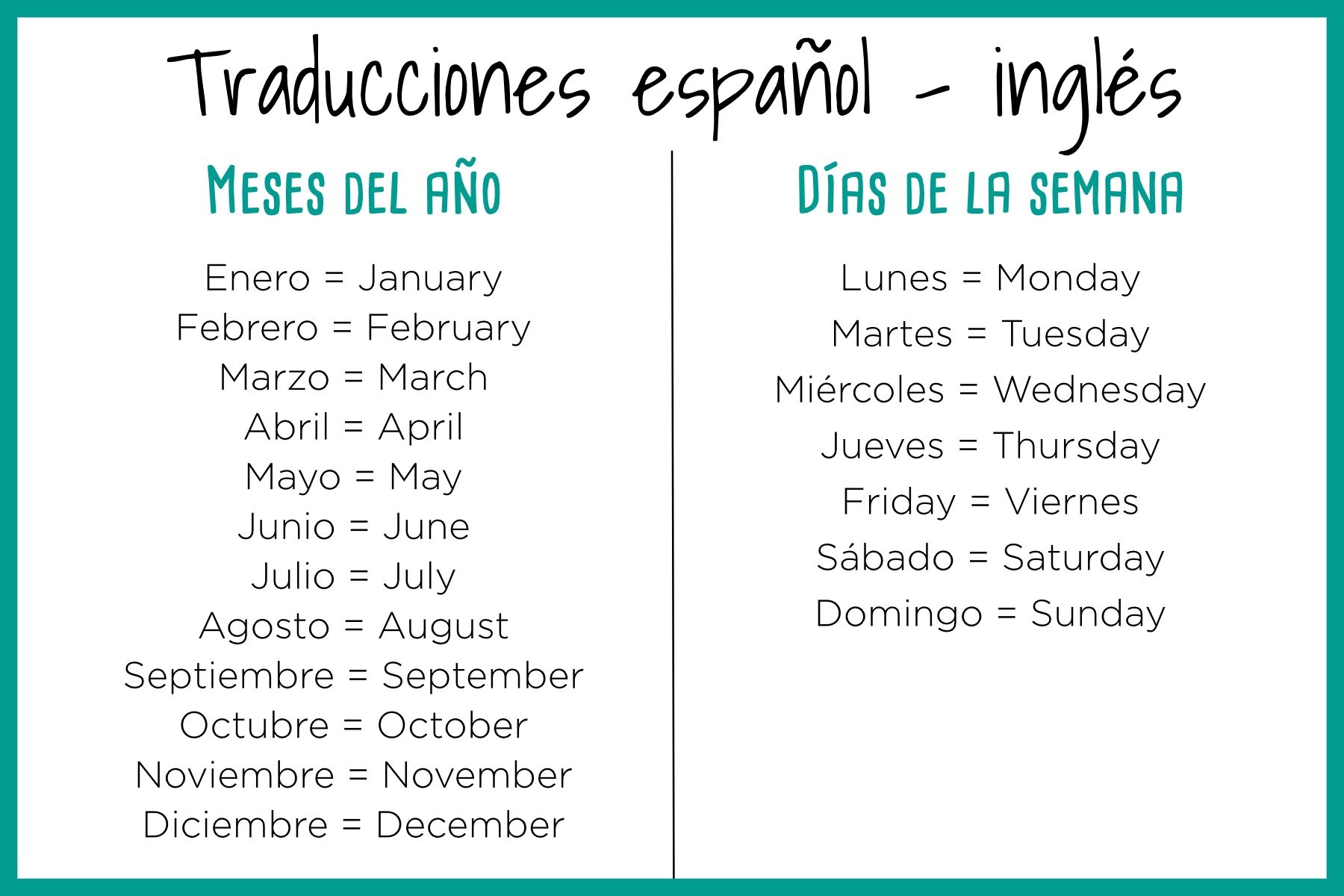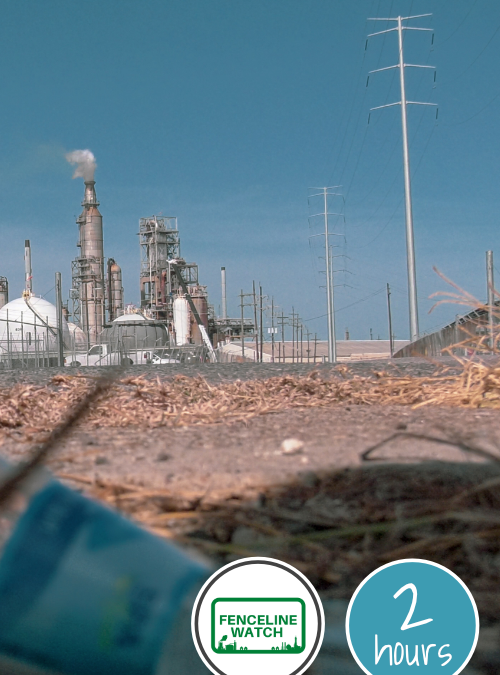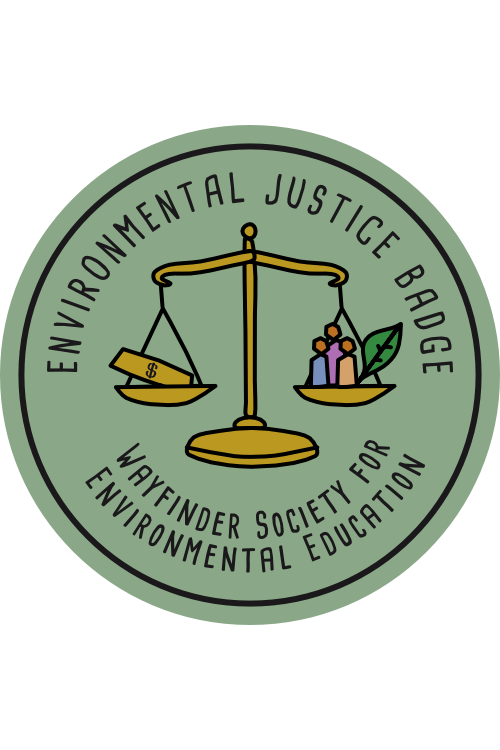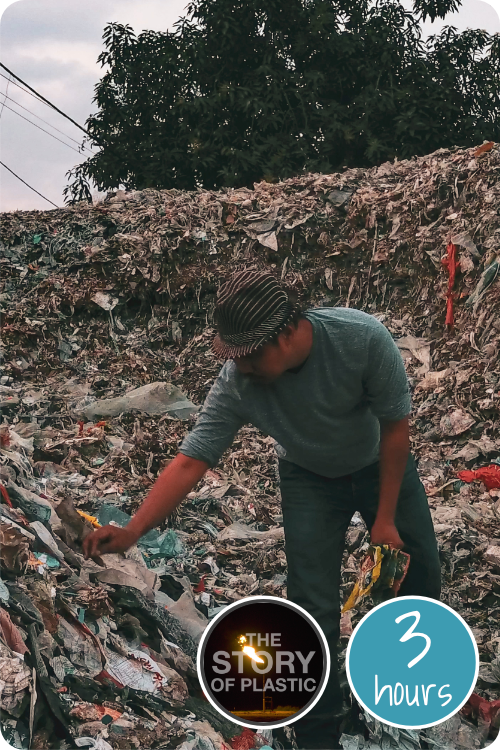
Photo credit: The Story of Plastic
Your mission / Su misión
Find out how limited english proficient (LEP) communities are treated unequally compared to English dominant communities and how historical barriers can oppress a community’s opportunities to shape and protect their own health and environment.
Descubre cómo las comunidades con dominio limitado del inglés (LEP) son tratadas de manera desigual en comparación con las comunidades dominantes en inglés y cómo las barreras históricas pueden oprimir las oportunidades de las comunidades para moldear y proteger su propia salud y medio ambiente.
Time Commitment: 2 Hours / Duración: 2 Horas
Range of Impact: Community / Rango de Impacto: Comunidad
This Action was created in partnership with Fenceline Watch. / Esta Acción fue creado en colaboración con Fenceline Watch.

Why this Action is impactful
When a polluting facility, like a plastic manufacturing factory or an oil and gas refinery, makes any changes that might impact the surrounding community, they are legally required to issue a public notice. The purpose of the public notice is to inform the community, and give them the opportunity to speak for or against the changes, for example to raise concerns and oppose the changes if they are going to cause pollution that could harm the surrounding community.
For people whose first language is not English, they have barriers to speaking, reading, or writing in English; they face limited English proficiency and are classified as linguistically isolated communities. Access to information may be limited to households that speak languages other than English, not just Spanish, leaving them vulnerable to dangerous infrastructure. Hazardous infrastructure can include chemical plants, refineries, landfills, waste incinerators, and other industrial facilities that cause negative health and environmental impacts from air, water, and soil pollution.
Problems of injustice arise when parts of the community are not fairly engaged in the public notice process. Understanding how these injustices occur can help you protect and advocate for the health of your whole community.
What to know before getting started
In the US, polluting companies must apply to state agencies like the Texas Commission on Environmental Quality for permits to make their factory bigger or emit more pollution (these agencies implement federal laws like the Clean Air Act, but many have discretion over how to define, enact or even to chose to reject EPA protection). Whenever they do this, the law states that they must provide public notice. This means notifying surrounding neighborhoods (oftentimes just by newspaper) of their plans. The community can then submit comments in support, against, or to request a public hearing for further discussion and to get more information from the polluting facility. Public notice is a protected legal right and is crucial for communities to protect their health.
In neighborhoods like Manchester in Houston, Texas, communities are composed largely of people of color, many of which are Non-English speaking, Limited English Proficient, and linguistically isolated communities. These different traits cause an amplified damaging effect, which cause discrimination by large polluting companies in search of economic interests. They take advantage of the language barrier to limit the participation of the public, since the meetings are often held only in English. This shuts out input from people who do not not speak English and is an example of how language injustice fuels environmental injustice.
Here are some additional real-world examples of how polluting companies have treated non-English-speaking communities unequally.
Location: Houston, Texas
Polluting company: Valero Refinery
State Environmental Agency: Texas Commission on Environmental Quality
- Alternative (ex. Spanish) language notification for permits contain errors and misinformation not found in the English notice.
- Notices of public meetings and hearings often are not translated, keeping non-English-speaking community members unaware of proposed expansions and increased emissions.
- During public hearings, translation (written) and interpretation (spoken) services are not always guaranteed, and if they are, volunteers are used which can result in inconsistent information.
- Online web pages dedicated to submitting complaints and eComments (public comments online) are on English-only websites.
The above examples are violations of Title VI (roman numeral six) of the Civil Rights Act of 1964, which protects against discrimination based on race, color, region, sex or national origin (which includes language spoken or citizenship status). No organization or agency that receives money from the federal government (in this case Texas Commission on Environmental Quality) can discriminate against those protected by Title VI.
Further reading:
- Language Justice Information: Fenceline Watch
- Latinos Face Significant Barriers to Health Care, Report Says
- Disaster Preparedness for Limited English Proficient Communities: Medical Interpreters as Cultural Brokers and Gatekeepers
- Federal Register: President Bill Clinton Executive Order 13166 Improving Access to Services for Persons With Limited English Proficiency, Department of Justice Enforcement of Title VI of the Civi Rights Act of 1964 – National Origin Discrimination Against Persons With Limited English Proficiency; Notice
- Breaking Down the Barriers Translating Limited English Proficiency Policy into Practice (English)
What to do
Take a look at an example of a public notice that was put out in 2019 by Valero Refining – a refinery next to Manchester neighborhood in Houston, Texas. In the public newspaper, they posted two notices, one in English and one in Spanish, for Federal Operating Permit O1381. Here are the two notices side-by-side.
- Compare the two notices and identify the difference between them. (The “Tips” and “What to Watch Out For” sections below are helpful.) Take time to understand why the difference matters.
- Now, using the EJSCREEN mapping tool find demographic data on the neighborhood of Manchester in which the Valero Houston Refinery is located. (Notice: The EJSCREEN mapping tool was removed from the Official US federal government website. The link above is for an archived version of the tool.) This map shows US Census data. Census tracts that are marginalized by underinvestment and overburdened by pollution are designated as being disadvantaged and are highlighted in blue on the map. Federally Recognized Tribes, including Alaska Native Villages, are considered disadvantaged communities, whether or not they have land.
- In the search bar on the map, input the address of the Valero Houston Refinery: 9701 Manchester St, Houston, Tx.
- Zoom out until you see the word Manchester.
- Click on the word “Manchester” to select the census tract that includes the refinery and the city of Manchester. In the census tract, outlined by the bold blue line, you’ll see small rectangles representing homes, and circles representing the storage tanks and other buildings that are part of the refinery.
- Explore the demographic statistics on the right side of the screen to find out how severely people living in that area are impacted by various social and environmental burdens. The burdens are categorized by issue (including climate change effects, accessibility to energy, health issues, legacy pollution a.k.a. lasting pollution from past industries, pollution associated with transportation and traffic, water pollution, and workforce development). Make note of the low-income population and linguistic isolation tabs to see how the community of Manchester compares to the country as a whole. Most of the statistics are presented as percentiles. A percentile is like a rank.
After having compared the notices and examining the demographic data, answer the quiz questions in the “Track” section below. Use the “Tips” and “What to Watch Out For” sections below for helpful advice.
Tips and Suggestions
- Use the Spanish definitions below to help you spot the differences in Valero’s public notices.
- You don’t need to know any technical information to spot the difference.
- Neighborhoods such as Manchester, composed largely of communities of color, are made up of a diverse group of individuals faced with several different barriers ranging from fear of living in mixed citizenship status families to cultural, linguistic barriers and low-income. So, language injustice is one more challenge that these communities must deal with.
- Think about how income, race, documentation status, and language might impact the level of exposure one might have to polluted air, water and soil.
- Translation: written communication.
- Interpretation: spoken communication.
- What is a percentile? A percentile is a rank that compares one census tract to the the others. Example: If the Particulate Matter burden for Manchester is in the 89th percentile it means that only 11% of the country has worse Particulate Matter burden than Manchester.
- English-Spanish Translations:

Complete the questions below in the “Track your contribution / Seguimiento de su contribución” section to get credit for completing this Action.
Por qué esta acción es impactante
Cuando una instalación contaminante, como una fábrica de fabricación de plástico o una refinería de petróleo y gas, realiza algún cambio que pueda afectar a la comunidad circundante, está legalmente obligado a emitir un aviso público. El aviso público permite que el público se dé cuenta de los proyectos/instalaciones que necesitan permiso. También ofrece oportunidades a la comunidad de participar, aclarar y evaluar cómo los proyectos los afectarán para que puedan evitar la liberaciones de contaminación asociada con el proyecto por la protección de su salud y sus comunidades. Para las personas cuales su primer idioma no es el inglés, tienen barreras para hablar, leer o escribir en inglés; enfrentan dominio limitado del inglés y son clasificadas como comunidades aisladas lingüísticamente. El acceso a la información puede limitarse a los hogares que hablan idiomas distintos del inglés, no nada más el español, lo que los hace vulnerables a la infraestructura peligrosa.
La infraestructura peligrosa puede incluir plantas químicas, refinerías, rellenos sanitarios, incineradores de desechos y otras instalaciones industriales que causan impactos negativos para la salud y el medio ambiente a causa de la contaminación del aire, el agua y el suelo.
Los problemas de injusticia surgen cuando partes de la comunidad no participan de manera justa en este proceso. Comprender cómo ocurren estas injusticias puede ayudarlo a proteger y defender la salud de toda su comunidad.
Qué saber antes de empezar
En los EE. UU., las empresas contaminantes deben solicitar a las agencias estatales como la Comisión de Calidad Ambiental de Texas, estas agencias implementan leyes federales (como la ley de aire limpio), pero muchas tienen discreción sobre cómo definir, promulgar o si incluso optan por rechazar la protección de la EPA. Los permisos permiten a las refinerías de petróleo, las instalaciones petroquímicas u otras industrias contaminantes, la capacidad de hacer más grande su fábrica o de emitir más contaminación. Siempre que hagan esto, la ley establece que deben dar aviso público. Esto significa notificar a los vecindarios cercanos (muchas veces solo por el periódico) de sus planes. Luego, la comunidad puede enviar comentarios en apoyo, en contra o para solicitar una audiencia pública para discutir más y obtener más información de la instalación contaminante. El aviso público es un derecho legal protegido y es fundamental para que las comunidades protejan su salud
En comunidades como Manchester en el este de Houston, Tejas, las población afectada es principalmente de personas de color, de bajos ingresos, las cuales no hablan inglés con fluidez. Estos rasgos distintos causan un efecto de daño amplificado los cuales causan discriminacion por grandes empresas contaminantes en búsqueda de intereses económicos se aprovechan de la barrera del idioma para limitar la participación del público, ya que las reuniones se llevan a cabo sólo en inglés. Esto excluye las opiniones de las personas que no hablan inglés y es un ejemplo de cómo la injusticia lingüística alimenta la injusticia ambiental.
Debajo hay unas muestras de cómo se manifiestan las barreras lingüísticas con comunidades afectadas por fábricas contaminantes.
Ubicación: Houston, Texas
Empresa contaminante: Refinería Valero
Agencia ambiental del estado: Comisión de Calidad Ambiental de Texas
- La mayoría de los avisos a reuniones públicas y audiencias no se traducen, lo que mantiene a los miembros de la comunidad que no hablan inglés sin conocer los detalles de megaproyectos contaminantes, expansiones propuestas, o la cantidad de emisiones tóxicas.
- Cuando se producen notificaciones/avisos en idioma alternativo (por ejemplo, español) los permisos contienen errores negligentes que no se encuentran en el aviso en inglés.
- Durante las audiencias públicas, los servicios de traducción (escrita) e interpretación (hablada) no siempre están garantizados y, si lo están, se utilizan voluntarios, lo que puede resultar en información incongruente.
- Las páginas web dedicadas para enviar quejas y comentarios electrónicos (eComments) se encuentran en sitios web solo en inglés.
Los ejemplos anteriores son violaciones del Título VI (número romano seis) de la Ley de Derechos Civiles (1964), que protege contra la discriminación por motivos de raza, color, región, sexo u origen nacional (que incluye el idioma hablado o el estado de ciudadanía). Ninguna organización o agencia que reciba dinero del gobierno federal (en este caso la Comisión de Calidad Ambiental de Texas) puede discriminar a las personas protegidas por el Título VI.
Lectura suplementaria:
- Compromiso Renovado del Gobierno Federal hacia las obligaciones de Acceso al Idioma en virtud de la Orden Ejecutiva 1316
- Las barreras idiomáticas alejan a latinos de una buena atención médica
- Estrategias para superar las barreras idiomáticas entre el personal de salud-usuario de servicios de salud pública en España, Estados Unidos y México
- Rompiendo las barreras: traduciendo la política de dominio limitado del inglés en práctica (español)
Utiliza lo que has aprendido
La Refinería de Valero publicó dos avisos, uno en inglés y otro en español, para el Permiso Federal de Operación O1381. Aquí están los dos avisos uno al lado del otro.
- Compara los dos avisos e identifica la diferencia entre ellos. (Las secciones “Pistas y sugerencias” a continuación son útiles.) Revisa cada detalle del aviso para comprender la diferencia y su importancia.
- Ahora, utilizando la herramienta de mapeo EJSCREEN encontrará datos demográficos del barrio de Manchester en el que se encuentra la Refinería Valero Houston. (Aviso: la herramienta de mapeo EJSCREEN se eliminó del sitio web oficial del gobierno federal de EE. UU.. El enlace de arriba es para una versión archivada de la herramienta). Este mapa muestra datos del censo de EE. UU. Las zonas censales que están marginadas por la falta de inversión y sobrecargadas por la contaminación se designan como desfavorecidas y se resaltan en azul en el mapa. Las tribus reconocidas a nivel federal, incluidas las aldeas nativas de Alaska, se consideran comunidades desfavorecidas, tengan o no tierras.
- En la barra de búsqueda en el mapa, ingrese la dirección de la Refinería Valero Houston: 9701 Manchester St, Houston, Tx.
- Aléjese hasta que vea la palabra Manchester.
- Haga clic en la palabra “Manchester” para seleccionar el sector censal que incluye la refinería y la ciudad de Manchester. En el sector censal, delineado por la línea azul en negrita, verá pequeños rectángulos que representan casas y círculos que representan los tanques de almacenamiento y otros edificios que forman parte de la refinería.
- Explore las estadísticas demográficas en el lado derecho de la pantalla para descubrir cuán gravemente las personas que viven en esa área se ven afectadas por diversas cargas sociales y ambientales. Las cargas se clasifican por tema (incluidos los efectos del cambio climático, la accesibilidad a la energía, los problemas de salud, la contaminación heredada, también conocida como contaminación duradera de industrias pasadas, la contaminación asociada con el transporte y el tráfico, la contaminación del agua y el desarrollo de la fuerza laboral). Tome nota de las pestañas de población de bajos ingresos y aislamiento lingüístico para ver cómo se compara la comunidad de Manchester con el país en su conjunto. La mayoría de las estadísticas se presentan como percentiles. Un percentil es como un rango.
Después de comparar los avisos y examinar los “Indicadores Demográficos”, responde a las siguientes preguntas después de comparar los avisos y examinar los datos demográficos.
Pistas y sugerencias
- Consulte las definiciones en español a continuación para detectar las diferencias en el aviso público de Valero.
- No se necesita experiencia técnica para detectar las diferencias.
- Comunidades como Manchester, compuestas en gran parte por poblaciones de color, enfrentan varias barreras diferentes: familias con estatus de ciudadanía mixta y de bajos ingresos que pueden incluir barreras lingüísticas. El daño de una industria contaminante puede magnificarse de formas complejas por una combinación de estos factores de vulnerabilidad. La injusticia lingüística impide que la información básica llegue a las personas afectadas.
- Evalúe cómo los ingresos, la etnia, la ciudadanía y el idioma pueden afectar el nivel de exposición que uno podría tener al aire, el agua y el suelo contaminados.
- Traducción: comunicación escrita
- Interpretación: comunicación hablada.
- ¿Qué es un percentil? Un percentil es un rango que compara un sector censal con los demás. Ejemplo: si la carga de partículas en Manchester está en el percentil 89, significa que solo el 11% del país tiene una carga de partículas peor que Manchester.
- Traducciones inglés-español:

Complete las preguntas a continuación en la sección “Track your contribution / Seguimiento de su contribución” para obtener crédito por completar esta acción.
Track your contribution / Seguimiento de su contribución
To submit your work and get recognized for your contribution to your community, complete the form below. If we approve your submission, you’ll be awarded 2 Hours. / Para enviar su trabajo y ser reconocido por su contribución a su comunidad, complete el siguiente formulario. Si aprobamos su envío, se le otorgarán 2 Horas.
You may submit your answers in English or Spanish. / Puede enviar sus respuestas en inglés o español.
Learn more / Aprende más
Check out the educational videos below to learn more about this topic. / Consulte los videos educativos a continuación para obtener más información sobre este tema.
Breathe This Air: A #PlasticJustice Film by Peak Plastic Foundation
Learn about a powerful tactic for creating a more just world: listening to and amplifying the stories and solutions shared by people being harmed by plastic production and disposal.
Conozca una táctica poderosa para crear un mundo más justo: escuchar y amplificar las historias y soluciones compartidas por personas perjudicadas por la producción y eliminación de plástico.
Do another Action
Check out our other Actions that build off of this one!
Environmental Justice Pathway Badge
This Solution video is part of the Environmental Justice Pathway Badge. Complete the Pathway to earn the Badge!
The Story of Plastic - Watch the Film
Watch The Story of Plastic documentary and share your thoughts with us.
Engage with a Local Politician
Take it to the next level and connect with your local representative one-on-one.
Support the Break Free From Plastic Pollution Act
Sign your support for this incredible nation-wide bill on plastics.
Attend a City Council Meeting
Tell your local representatives about issues that are important to you.






